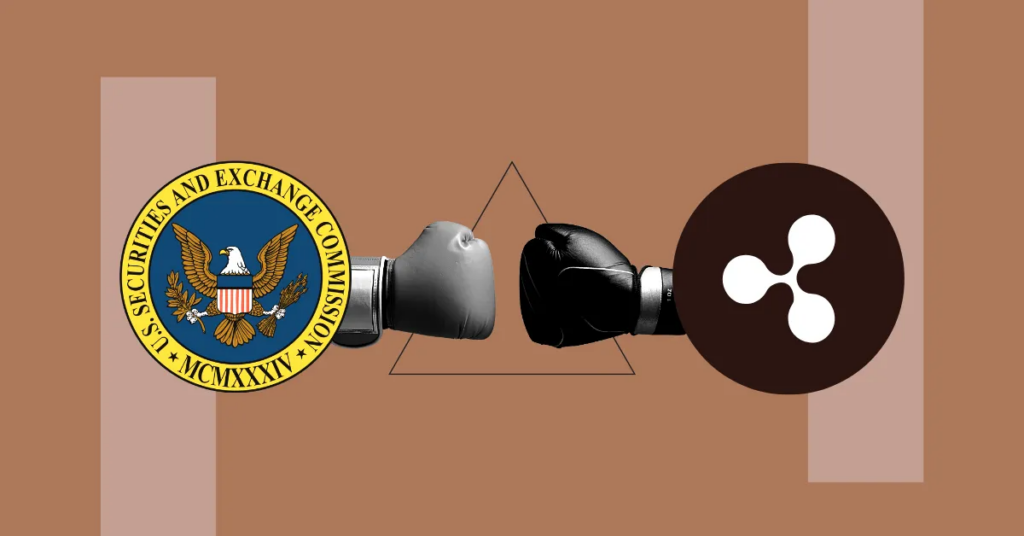Digital Zeitgeist – Ripple Labs Lands a Legal Milestone in SEC Case – Implications for the Cryptocurrency Industry
On July 13, Ripple Labs Inc. secured a historic legal victory as a U.S. District Judge ruled that the sale of its XRP token on public exchanges did not contravene federal securities law. The decision, delivered by Judge Analisa Torres, has sent tremors throughout the cryptocurrency sector, with the value of XRP rocketing by a remarkable 75% by late Thursday afternoon, according to data from Refinitiv Eikon.
This judgment marks the inaugural win for a cryptocurrency company in a case brought forward by the U.S. Securities and Exchange Commission (SEC), offering a glimmer of hope to other digital asset firms entangled in similar legal tussles with the regulatory body. However, it’s important to note that this decision is narrowly focused on the specifics of this case and does not definitively determine the jurisdictional scope of the SEC over cryptocurrency offerings.
The SEC, despite losing the battle against Ripple Labs, savoured a partial victory. Judge Torres held that the direct sale of XRP to sophisticated investors was a violation of federal securities law. The SEC spokesperson expressed contentment with this part of the ruling, though a comprehensive review of the judgment was still underway, and a potential appeal against the decision remains on the cards.
Ripple’s CEO, Brad Garlinghouse, celebrated the ruling, deeming it a monumental victory not only for Ripple but for the wider U.S. cryptocurrency industry. Buoyed by the verdict, Coinbase, the largest U.S. crypto exchange, announced the resumption of XRP trading on its platform. This news drove a surge in Coinbase’s stock, closing up 24% at $107 per share on Thursday.
Context: The XRP Case
In 2012, Ripple’s founders created the XRP token. The SEC accused Ripple Labs and its current and former chief executives of running a $1.3 billion unregistered securities offering by selling XRP. This case attracted immense attention from the cryptocurrency industry, where the SEC’s claim that most crypto tokens fall under the definition of securities – and thus subject to stringent investor protection rules – has long been a bone of contention.
The SEC has brought over 100 enforcement actions against various cryptocurrency offerings, declaring them as securities. However, many of these cases have culminated in settlements. In the handful of cases that have gone to trial, judges have largely concurred with the SEC’s view that the digital assets under examination were indeed securities.
Judge Torres’ Groundbreaking Ruling
The crux of Judge Torres’ ruling pivoted around whether Ripple’s XRP sales on public cryptocurrency exchanges constituted offers of securities under the law. Her verdict: they didn’t. She reasoned that purchasers did not have a rational expectation of profit linked solely to Ripple’s efforts.
These sales were dubbed as “blind bid/ask transactions,” where buyers could not determine if their payments were being funnelled to Ripple or any other seller of XRP. Torres’ ruling drew from a U.S. Supreme Court case that defines an investment contract – a category of security – as “an investment of money in a common enterprise with profits to come solely from the efforts of others.”
While Ripple savoured a significant victory, the SEC wasn’t completely empty-handed. The judge concluded that Ripple’s $728.9 million of XRP sales to sophisticated buyers like hedge funds did amount to unregistered sales of securities. This was attributed to Ripple’s marketing efforts targeted at institutional investors, clearly implying a speculative value proposition for XRP hinged on the company’s efforts to develop the underlying blockchain infrastructure.
Looking Ahead: Calls for Legislation
The Ripple verdict has revitalised calls for clear legislative rules for digital tokens. The House of Representatives Majority Whip Tom Emmer has urged the legislative body to capitalise on the momentum created by the Ripple case, arguing that “a token is separate and distinct from an investment contract it may or may not be part of.”
Devil’s Advocate: A Dissenting Perspective
While this ruling marks a watershed moment for Ripple Labs and the broader crypto industry, it’s crucial not to overlook the larger picture. The judgment doesn’t conclusively resolve the wider debate on whether cryptocurrencies fall under securities law.
The verdict offers limited precedence, bound strictly by the specifics of Ripple’s case. Moreover, the SEC has claimed a partial victory, which suggests a nuanced understanding of the issue at hand. Digital currencies being sold directly to sophisticated investors were deemed securities, reflecting that the SEC’s stance still holds some merit.
This victory could spur cryptocurrency companies to further challenge SEC’s authority. However, it could also result in a paradox where the sale of cryptocurrencies to retail investors is seen as less regulated than sales to institutional investors, which could potentially expose retail investors to heightened risks.
In essence, while Ripple Labs’ win is a significant milestone, the fundamental need for unambiguous, comprehensive legislation governing cryptocurrencies still looms large, ensuring investor protection without stifling innovation.
Disclaimer: The views and opinions expressed in this article are those of the author and do not necessarily reflect the official policy or position of GPM-Invest or any other organisations mentioned. The information provided is based on contemporary sourced digital content and does not constitute financial or investment advice. Readers are encouraged to conduct further research and analysis before making any investment decisions.

